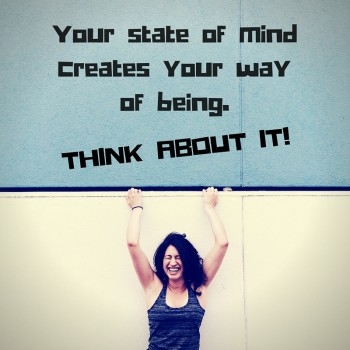It’s time for a little science refresher. Ready? Ok, good.
Remember what a scientific theory is? It’s alright if you don’t. This is the refresher part. A theory is an idea or set of facts that intends to explain some aspect of our reality. They are formed by observing or experiencing something and then drawing logical assumptions about why that “something” happened. We then look for evidence to prove that our new theory is true.
For example, I see that one group of people are sick with the same set of symptoms. I can’t see any obvious signs of what caused the illnesses, so I propose that tiny creatures invisible to the human eye were the cause. I get out my handy microscope and find that the group who is ill have a certain microscopic beastie in their system that is not present in people who are not sick. Voila! A germ theory of disease is born. Isn’t science fun?
It becomes a little less fun when we look at how we have theories in our personal lives and how we are not always very good scientists. In many cases, the theories that we invent and find evidence to support are not helpful. In fact, most of the time, they are preventing us from getting the results we want from any given area of life.
For example, if I believe a theory that “relationships are difficult” odds are, I am going to view my relationship through that lens. I will most likely ignore the multitudes of things that are effortless and focus more on the areas of conflict. I will be “cherry picking” the evidence to support my theory. I am not doing it on purpose, but it is happening nonetheless.
If your theory is that you are bad with money, struggle with love, can’t be happy in your job. etc. guess what evidence you will find? You will almost certainly be proving yourself correct because at some level we seem to prefer being right over being happy.
Last year around this time, I decided to upgrade the level of fun and adventure I was having in life. I began to look for things that I have always wanted to try, but just never did. I had a great list which included things like running an obstacle race and learning to surf.
Unfortunately, as soon as I would start to consider taking one of these new experiences on, a small chicken-like voice started clucking in my ear,
“You’re too old for that. Maybe you should take up knitting…”
Now I have nothing against knitting, it just did not fit my dream of fun or adventure. But as I considered hanging ten versus purling, I was simultaneously creating a bad theory called, “Jeff is too old to have fun.”
Luckily, as a life coach with the Handel Group®, I am trained to use the tools we teach to our clients in my own life. When I realized that I was proving a bad theory that did not align with my goals, I asked myself the same thing I ask my clients when they are proving their bad theories,
“Is this theory that I am too old 100% true 100% of the time?”
My answer was a fairly unconvincing, “probably not.” But I got my point – if it is not completely true, then why act like it is? If it is not an iron-clad law, then I have a choice. So I chose to take that bad theory and re-write it in a way that was in support of what I really wanted (yes, we can do that and it works much better that believing something that is just as arbitrary, but that keeps you from going for what you really want).
My “You’re too old for that,” became “learning and fun have no age limits.”
I then began to look for evidence to support my new theory. I googled people who learned to surf, skydive, earn their PhD’s later in life. I found tons of evidence. I began to look at surfers at one of our local beaches and saw that a majority of them appeared to be my age or older. I spoke to a man who told me he had been surfing since he retired 5 years ago and moved to the beach. He was 67! Now that was some solid evidence for my new and improved theory.
Armed with this new theory and the evidence to support it, I took a Monday off and booked a surf lesson. I met Eric, the surf coach, and after some “on land” instruction on paddling and “popping up,” I was off.
As I paddled out, I was amazed at how much strength it required. I thought, “Maybe you ARE too old for this…” but quickly banished the thought because Eric was about 20 feet ahead of me (and 5 years older). More evidence, just keep paddling. When I got out past the break, we sat and chatted while I caught my breath and waited for a good wave. Guess what. The first wave I caught, I stood up and rode all the way in. Not bad for an old guy.
The theories we create and try to prove really do impact the results that we get in our lives. Realizing first that we do create theories and seek evidence to prove them is the first step. Understanding that even though they feel true, they are completely relative and arbitrary and because of this we can discard them and choose a new theory based on what we really do want.
Think about what dumb theories you are busy proving in your life and which ones you would rather find evidence for instead. Post them below! We’d love ot hear from you.
Jeff
Handel Group Staff Coach
